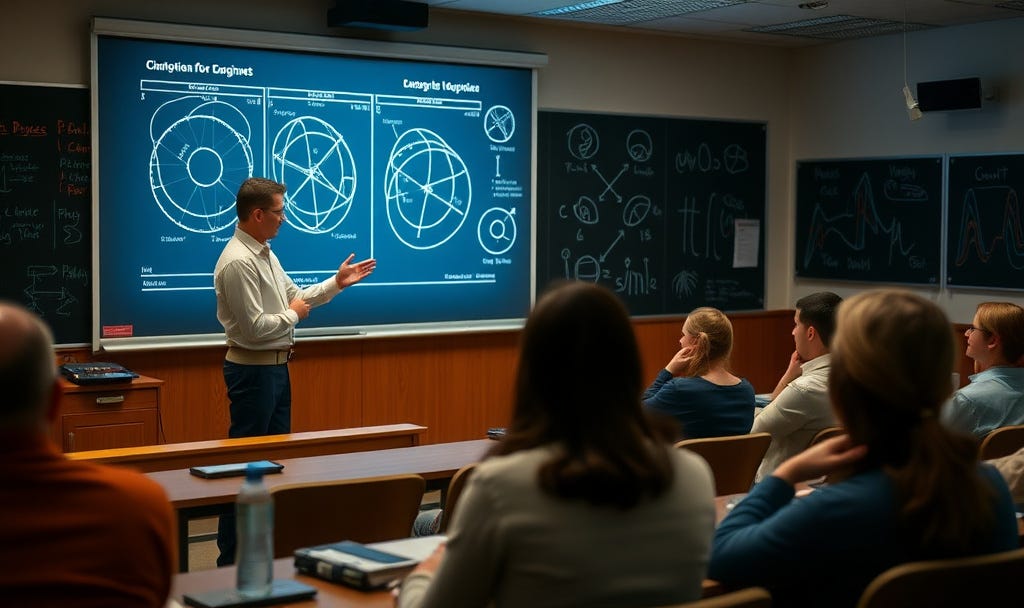Chapter 6 - Journey to Christendom (Third Edition)
Born As the Hellions Rushed the Gate
The 1960s marked a transformative period in European and American history—a decade of immense cultural upheaval and societal decline, arguably one of the most dramatic in Western civilization. In the United States, we remember the Sixties as a cultural revolution, one that shattered centuries-old moral and religious traditions. These foundations, built painstakingly over more than a millennium, crumbled almost overnight, paving the way for what many view as a cultural collapse.
Long before the 1960s, Western civilization had already diminished into a shadow of its former grandeur, known in the Middle Ages as Christendom. The Sixties simply capitalized on the vulnerabilities left by centuries of erosion—religious revolutions, the Enlightenment, the French Revolution, and the rise of twentieth-century communism—to deliver what some believe to be the final, devastating blow to this once-great civilization. Reflecting on this loss, one author remarked:
“I think it would be difficult to find a single decade in the history of Western culture when so much barbarism—so much calculated onslaught against culture and convention in any form, and so much sheer degradation of both culture and the individual—passed into music, into art, and onto the American stage as the decade of the Nineteen Sixties.”1
Christendom’s fortifications were already weak by the time the Sixties rolled around. The revolutionary forces of that decade struck the final blow, obliterating what remained of its spiritual and intellectual heritage. What followed were decades marked by moral confusion, philosophical chaos, and an open mockery of religious values. We might describe the era’s fallout as apocalyptic, as a civilization once rooted in order and faith now succumbed to disorder and arrogance.
The Erosion of Education and Reason
One of the most profound effects of the Sixties was its impact on education. Few people today were raised with a deep understanding of authentic Christianity as taught by the Roman Catholic Church. This deficiency, in part, stems from the collapse of traditional education, which once emphasized reason, logic, and debate—disciplines nurtured by the Church during the height of Christendom.
In their place, modern education promoted superficiality. As a result, we now have generations that equate debate with personal invectives and logical reasoning with online insults. A quick glance at internet comments reveals the tragic state of intellectual discourse. Gone are the academic disciplines of rhetoric, logic, and critical thinking that once distinguished Western education.

Even worse, many teachers have taught young people concepts stripped from historical and philosophical context. They don’t know how the foundational principles of thought developed, particularly those arising from Catholic intellectual traditions. Meanwhile, their parents—products of the revolutionary Sixties—are often equally unaware. Ironically, scholars of the so-called “Dark Ages” seem more enlightened about their reasoning than many modern academics. G.K. Chesterton astutely observed,
“There are arguments for atheism, and they do not depend, and never did depend, upon science. They are arguable enough, as far as they go, upon a general survey of life; only it happens to be a superficial survey of life.”2
The Breaking of Tradition
The cultural revolution of the Sixties snapped the chain of Tradition—one that stretched back to the Apostles and flourished during Christendom’s high years. Yet, this grand Tradition remains alive within the Catholic Church through its unbroken succession of popes and bishops. However, outside the Church, people have largely abandoned this Tradition. Protestantism rejected it during the Reformation, and public schools—described here as bastions of revolutionary, anti-Christian philosophy—have further distanced young minds from their cultural and religious heritage.
The consequences of this cultural rupture are staggering. Future generations may only learn about Christendom through secretive accounts, much like the ideological erasure seen during the French Revolution or under 20th-century communist regimes. The suppression of authentic thinking today threatens to surpass even the infamous censorship of the Inquisition. These modern movements, described as cannon blasts against the castle of Christendom, set the stage for the Sixties and its ultimate cultural devastation.
A Civilization Lost—and a Glimmer of Hope
To fully grasp the gravity of this cultural decline, imagine a child born into the chaos following the Sixties. Protected by his parents, he might initially see this new world as an adventure. But as he grows older, he becomes entangled in its darkness, mistaking the groping for direction as “freedom.” Unaware of the precipice ahead, he hurtles toward destruction—until, perhaps, a saving hand intervenes.
Picture that hand, fragrant with the perfume of roses, pulling the young man from the edge of disaster. The hand lifts him from darkness into light, from despair into joy, and from death into eternal life. This is the image of redemption—a chance to choose a path of freedom and beatitude rather than the darkness of ruin. It is a choice each individual must make.
I was born in 1959, just before this cultural cataclysm began. My story is one of grappling with the fallout, rediscovering faith, and recognizing the enduring power of Tradition in a world determined to forget it.
H.W. Crocker III, Triumph: The Power and the Glory of the Catholic Church (New York: Three Rivers Press, 2001) 416.
G.K. Chesterton, ILN, 1-3-31, http://chesterton.org/discover/quotations.html#Atheism, (December 2008)


